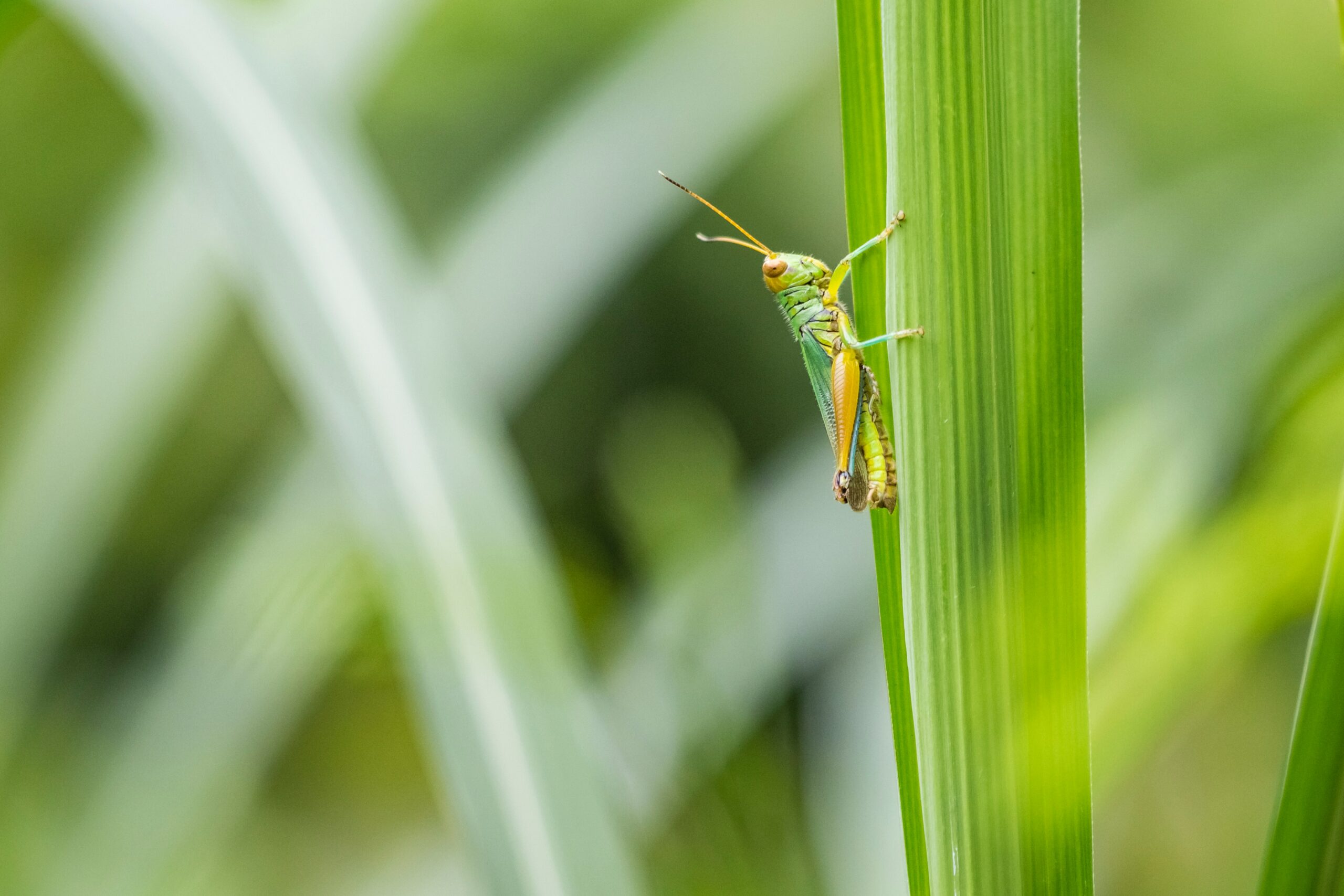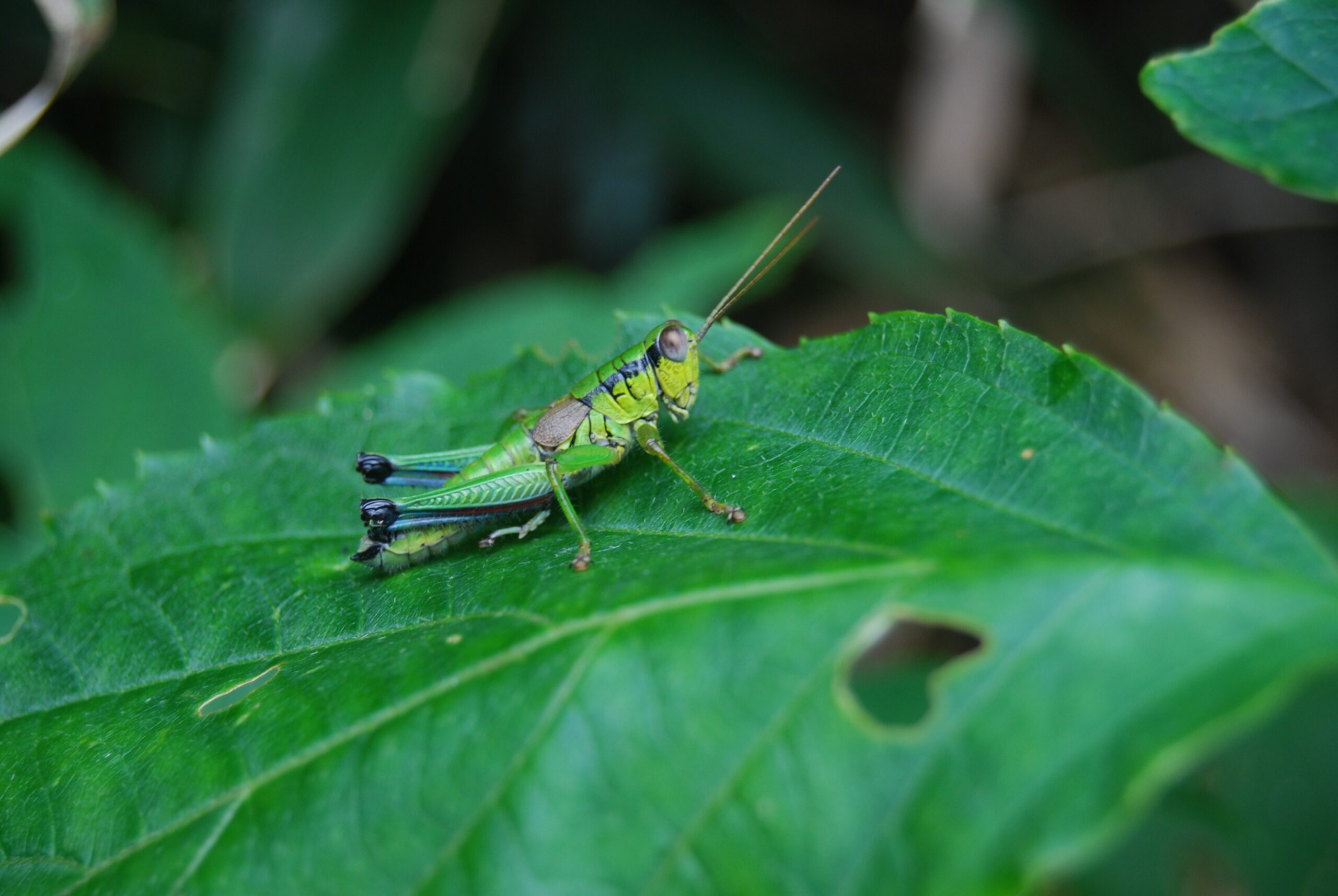
4 Ways to Keep Grasshoppers Away from Plants
In comparison with some other insects, grasshoppers might seem pretty harmless to the average person. Gardeners and plant enthusiasts, however, are well aware of the damage grasshoppers are capable of. They’re a certain type of insect that has mandibles, which allow them to chew through their food– and to turn your garden into a buffet table, leaving behind plenty of destruction.
If you’re tired of battling against grasshoppers in your garden, you’re certainly not alone. There are a few effective strategies that you can use to keep grasshoppers away from your plants!
1. Grasshopper-resistant plants
Certain types of plants aren’t appealing to grasshoppers, which means that they’re a smart choice for your garden! Choosing plants that grasshoppers want to avoid is a great plan of action. These plants include aromatic herbs, like basil, rosemary, and lavender– all of which emit strong scents that deter grasshoppers from coming anywhere near.
Additionally, planting marigolds and calendula can help to protect your other plants, since these plants are repellent to a variety of pests, including grasshoppers.
2. A diverse ecosystem
Introducing a wide variety of plants in your garden can help to keep things interesting and yield many different flowers and vegetables for you to enjoy– but it also encourages biodiversity, which helps to keep grasshoppers at bay.
Most plants attract different types of insects, and some attract beneficial ones like ladybugs, praying mantises, and (yikes!) even parasitic wasps. All of these insects feed on grasshopper eggs and young nymphs, helping to control the population.
Creating a balanced ecosystem that includes many types of insects and plants is a great way to naturally control the grasshopper population, and minimize grasshopper damage to your plants.

3. Natural repellents
While natural or DIY pest repellants are not always effective, there are a few that can be used in the event of a grasshopper infestation. Neem oil is a natural pesticide that is safe to spray on your plants. It’s an oil pressed from seeds from the neem tree.
To use it, you can mix it with water and apply it to your plants, where it will function as a protective barrier. And yes, you can eat plants that have been treated with neem oil– as long as you thoroughly wash them before consumption!
You can also use garlic or chili peppers to make a spray that grasshoppers dislike. Try blending a few cloves of garlic, or hot peppers, with water, and then spray the mixture on your plants.
4. Companion planting
It takes a little extra planning, but you might be able to discourage grasshoppers from interfering with your plants simply by using companion planting– where certain plants are strategically placed near one another.
When it comes to deterring grasshoppers, try planting nasturtiums or sunflowers near your most grasshopper-vulnerable plants. These plants are known as “trap crops”, and they’re used to draw grasshoppers away from other plants. Because grasshoppers are especially attracted to these, their attention will be diverted from the vegetables and flowers that you want to keep around.
Education and strategy
Typically, a pest control company can’t do much to protect a garden from grasshoppers. Insecticides labeled for grasshopper control might be more harmful than helpful, especially if sprayed on plants that you intend to eat.
Luckily, with some strategic planting, use of natural repellents, and a biodiverse garden ecosystem, it’s possible to get your grasshopper problem under control by yourself!
If you’re struggling with insect infestation and aren’t sure what to do about it, please don’t hesitate to give the experts here at West Termite & Pest a call. We’re here to help!
More posts from West Termite, Pest & Lawn
How Heating Systems Can Spread Pests Indoors
Heating systems are essential for keeping homes comfortable during the colder months, but they can also unintentionally contribute to indoor pest problems. In Arkansas, winter pests indoors such as rodents, spiders, and ants may already be seeking warmth, and heating...
Why Crawl Spaces Are Vulnerable to Winter Pests
Crawl spaces are often overlooked areas of a home, yet they are some of the most vulnerable spaces when it comes to winter pests. In Arkansas, cold weather drives rodents, insects, and other pests to seek warmth and shelter, and crawl spaces provide the perfect...
Planning Your New Year Pest Prevention
The start of a new year is the perfect time to think about protecting your home from pests. Even in the colder months, pests like rodents, spiders, and occasional insects can remain active indoors, and untreated vulnerabilities can lead to costly repairs or...



